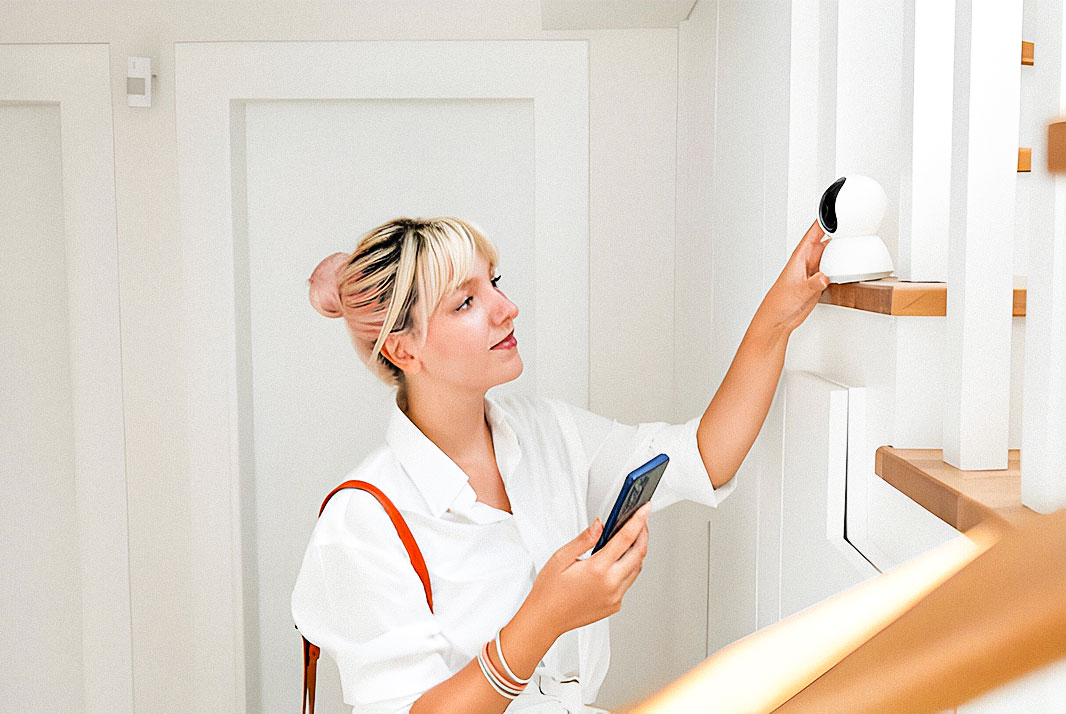Thinking about boosting your home security with a smart security camera? You’re making a smart choice! These devices offer a blend of advanced technology and convenience, ensuring your home is protected whether you’re there or miles away. Let’s explore everything you need to know about installing your first smart security camera.
Table of Contents
ToggleWhat is a Smart Security Camera?
A smart security camera is an internet-connected device that captures and streams video footage to your smartphone, tablet, or computer. Unlike traditional security cameras, smart cameras come packed with features like motion detection, night vision, two-way audio, and integration with other smart home devices.
Key Features of Smart Security Cameras
- High-Resolution Video: Clear and detailed footage, often in HD or 4K.
- Motion Detection: Alerts you to any movement within the camera’s range.
- Night Vision: Allows monitoring in low-light conditions.
- Two-Way Audio: Communicate with visitors or intruders.
- Remote Access: View live or recorded footage from anywhere.
Benefits of Smart Security Cameras
Enhanced Home Security
Smart security cameras act as a deterrent to potential intruders. The mere presence of a camera can discourage criminal activity around your home.
Remote Monitoring
With smart security cameras, you can keep an eye on your home in real-time, no matter where you are. This is perfect for checking in on pets, ensuring the kids are safe, or simply monitoring your property.
Integration with Other Smart Devices
Smart cameras can be integrated with other devices like smart locks, lights, and alarms, creating a cohesive and automated home security system.
Choosing the Right Smart Security Camera
Factors to Consider
When selecting a smart security camera, consider the following:
- Video Quality: Higher resolution provides clearer images.
- Field of View: A wider field of view covers more area.
- Storage Options: Choose between cloud storage and local storage.
- Connectivity: Ensure it has strong Wi-Fi connectivity.
- Power Source: Battery-powered vs. wired options.
Indoor vs. Outdoor Cameras
Differences and Specific Uses
- Indoor Cameras: Designed for use inside the home, these cameras are typically smaller and less weather-resistant.
- Outdoor Cameras: Built to withstand the elements, outdoor cameras are weatherproof and often have features like enhanced night vision and motion detection.
Key Features to Look For
- Indoor Cameras: Compact design, high resolution, good audio quality.
- Outdoor Cameras: Weatherproof casing, wide field of view, advanced night vision.
Essential Features of Smart Security Cameras
Resolution and Video Quality
Higher resolution cameras provide clearer and more detailed footage, which is crucial for identifying faces and other important details.
Night Vision
Ensure your camera has infrared or other night vision capabilities to monitor your property even in complete darkness.
Motion Detection
Motion detection features alert you to any movement within the camera’s range, reducing the need to monitor the footage constantly.
Two-Way Audio
Two-way audio allows you to communicate with visitors or intruders through the camera, adding an extra layer of security.
Cloud Storage and Local Storage Options
Decide whether you prefer storing your footage on a cloud server (usually involves a subscription) or locally on an SD card.
Preparing for Installation
Selecting the Right Location
Choose a location that provides the best view of the area you want to monitor. Consider entry points like doors and windows.
Gathering Necessary Tools and Equipment
Before starting, make sure you have all the necessary tools and equipment, such as a drill, screws, and a stable Wi-Fi connection.
Step-by-Step Installation Guide
Unboxing and Setup
- Unbox Your Camera: Ensure all components are included.
- Charge or Power Your Camera: Depending on the power source.
Connecting to Wi-Fi
- Download the App: Install the camera’s app on your smartphone.
- Follow Instructions: Use the app to connect the camera to your Wi-Fi network.
Positioning and Mounting the Camera
- Test the View: Before mounting, test the camera’s view to ensure it covers the desired area.
- Mount the Camera: Use the provided screws and brackets to secure the camera.
Configuring Settings Through the App
- Adjust Settings: Set up motion detection zones, notifications, and other preferences through the app.
- Test the Camera: Ensure everything is working correctly.
Integrating with Smart Home Systems
Compatibility with Other Smart Devices
Check if your camera is compatible with other smart devices like lights, alarms, and voice assistants (Alexa, Google Assistant, etc.).
Creating Automated Routines
Set up automated routines, such as turning on lights when motion is detected or sending alerts to your phone.
Troubleshooting Common Issues
Connectivity Problems
Ensure your Wi-Fi signal is strong enough to reach the camera. Consider using Wi-Fi extenders if needed.
Poor Video Quality
Check the camera’s resolution settings in the app and ensure the lens is clean and unobstructed.
Motion Detection Sensitivity
Adjust the sensitivity settings in the app to avoid false alarms from pets or passing cars.
Maintaining Your Smart Security Camera
Regular Updates
Keep your camera’s firmware updated to ensure you have the latest features and security improvements.
Cleaning and Upkeep
Regularly clean the camera lens and housing to maintain clear video quality. Check for any damage or wear and tear.
Privacy and Security Considerations
Protecting Your Footage
Use strong, unique passwords for your camera and Wi-Fi network. Enable two-factor authentication if available.
Ensuring Data Privacy
Understand the privacy policy of your camera’s manufacturer, especially if using cloud storage. Ensure your data is encrypted and stored securely.
Cost Considerations
Upfront Costs vs. Long-Term Benefits
While the initial cost of a smart security camera can be high, the long-term benefits, including peace of mind and potential deterrence of crime, are invaluable.
Subscription Plans for Cloud Storage
Some cameras require a subscription for cloud storage. Compare plans and choose one that fits your needs and budget.
User Reviews and Testimonials
Real-Life Experiences
Read user reviews and testimonials to understand the pros and cons of different models. Learn from others’ experiences to make an informed decision.
Tips from Other Users
Users often share valuable tips on installation, setup, and maximizing the use of your smart security camera.
Conclusion
Installing a smart security camera is a great way to enhance your home’s security. With the right camera, you can monitor your property, deter potential intruders, and integrate seamlessly with your smart home system. By following this guide, you’ll be well on your way to setting up your first smart security camera with ease.







